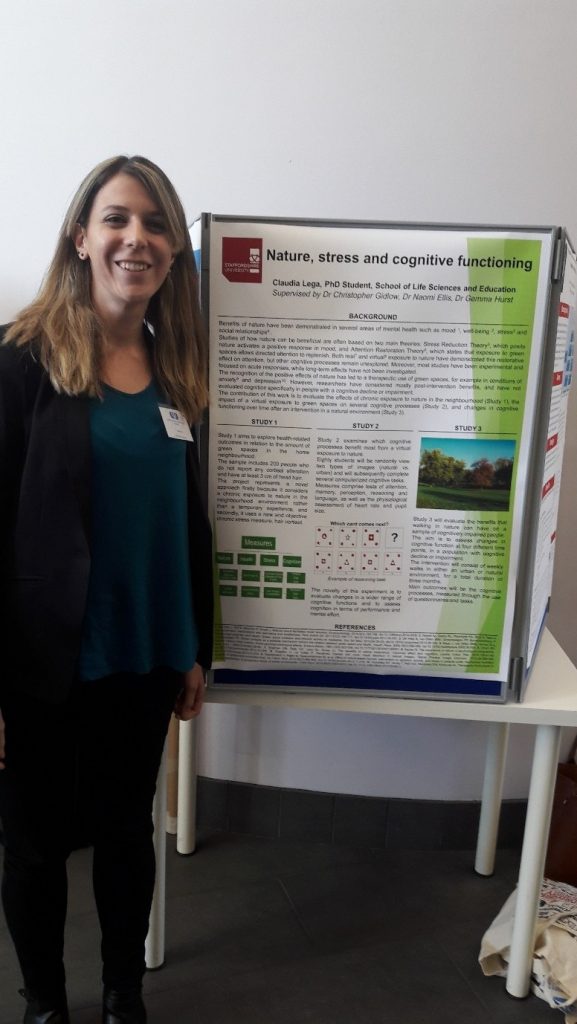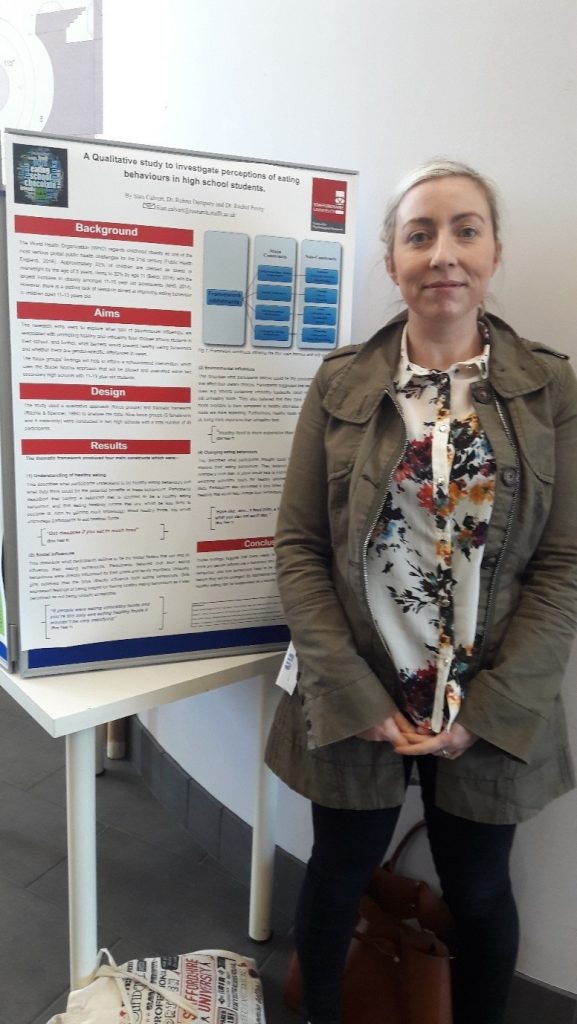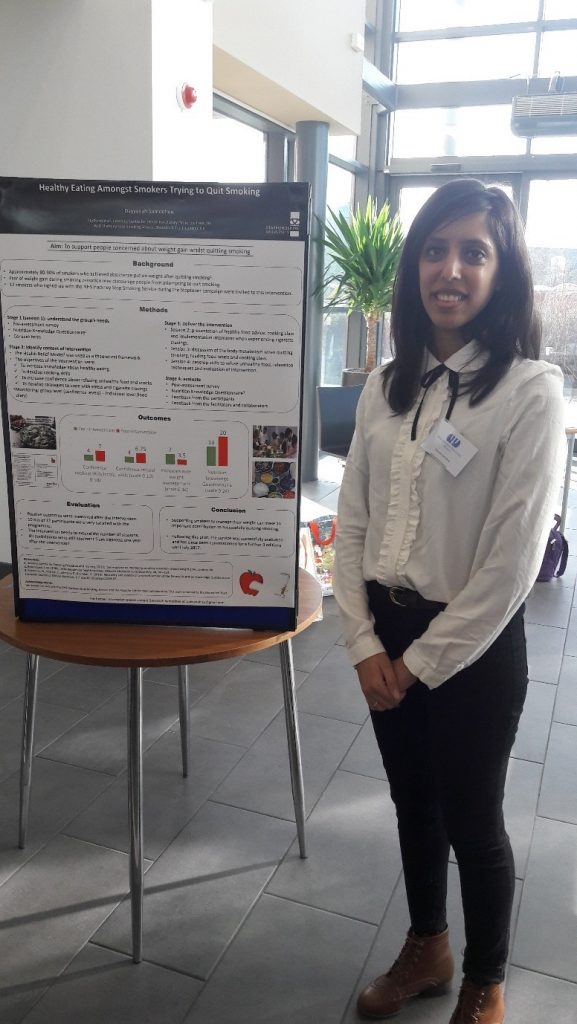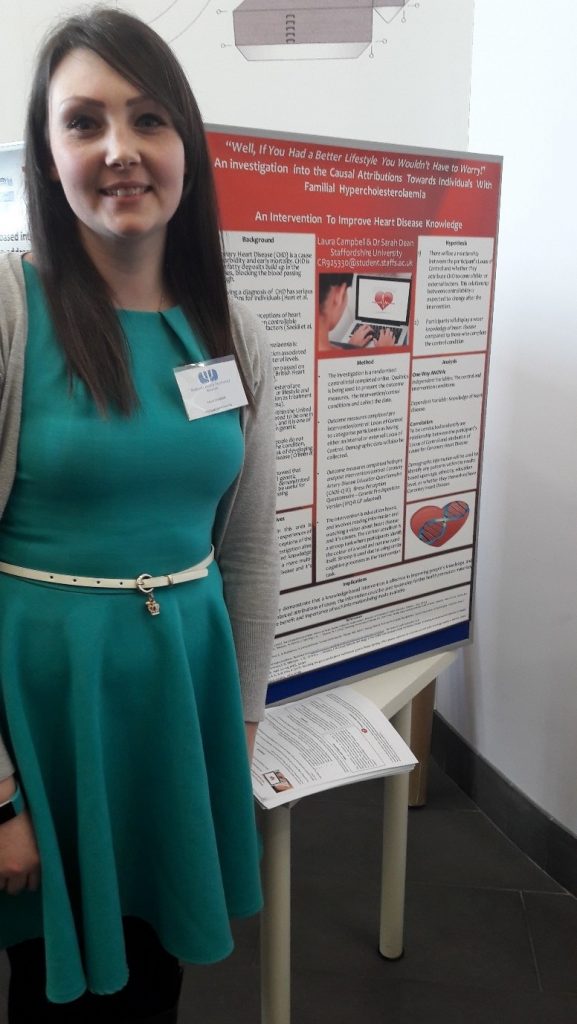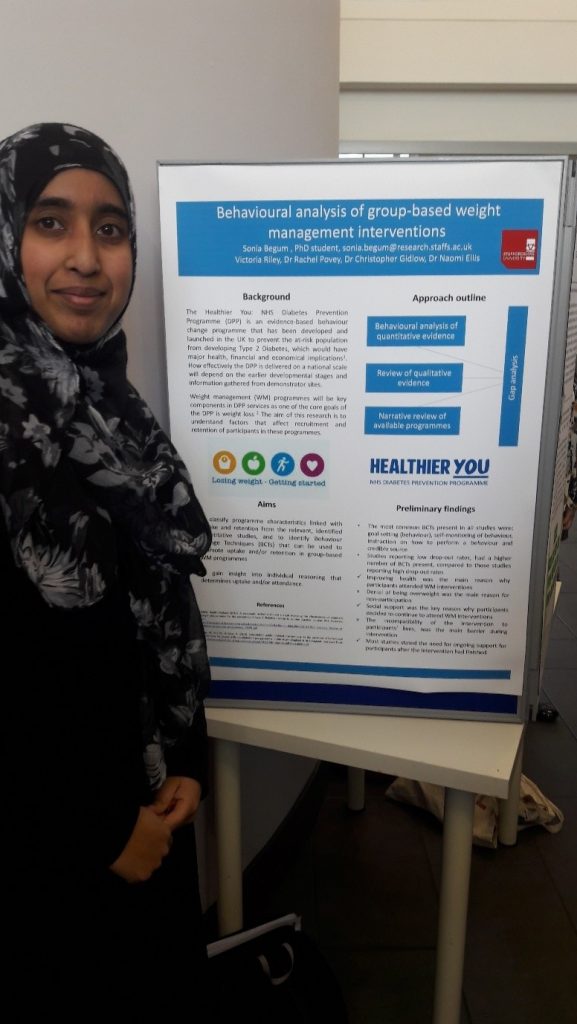Written by Dr Amy Burton, Senior Lecturer in Qualitative Psychological Research Methods
The World Health Organization and UK Policy recommend breastfeeding exclusively for the first six months of life, followed by breastfeeding alongside complementary foods for up to two years and beyond. However, levels of exclusive breastfeeding at 6-8 weeks are only around 32% in England and Scotland and breastfeeding initiation is particularly low in Stoke on Trent, falling below the England average.
At Staffordshire University we have a group of researchers who are interested in learning about the experience of breastfeeding and finding new ways to develop and improve breastfeeding support. On the 26th May 2022 we held an event to discuss our breastfeeding research and establish new networks with breastfeeding stakeholders.
We welcomed 42 attendees (15 in person, 27 online) to the event which included representatives from national organisations such as The Breastfeeding Network (BfN), the National Childbirth Trust (NCT), LatchAid, Just Family CIC, the Association of Breastfeeding Mothers (ABM), Pure Insight, and the NHS, in addition to midwifery, criminology, and child nursing students, breastfeeding mothers, and pregnant women.
We shared our breastfeeding research findings on:
- Mixed feeding in first time mothers
- Predictors of breastfeeding duration
- Body image and breastfeeding intention
- Post-partum body image and breastfeeding duration
- COVID-19 and breastfeeding, and
- Breastfeeding beyond 12 months
We then facilitated a guided discussion with two breastfeeding mothers about their own experiences and thoughts about our research.
World Café discussions
Attendees then took part in a World Café. World Café is a collaborative research approach where group discussions are focussed on a series of questions. For our World Café we asked:
- What stood out for you in the research and experiences that have been discussed today, and what do you hope to do with this new knowledge?
- What do you feel are the immediate breastfeeding research priorities?
- What do you feel are the biggest barriers to breastfeeding research influencing policy and practice, and how might we overcome these?
After each question a few attendees from each group moved to another table where the discussions continued. This resulted in further exchange of knowledge and summaries of previous discussions with the aim of reaching a group-led ‘world view’ of each issue. Discussion points were noted on poster paper and audio-recorded.
After the event the attendees were given opportunity to feedback on the key outcomes of these discussions as part of a follow up evaluation survey.
Breastfeeding priorities
Our World Café highlighted a number of breastfeeding priorities. Some of these include:
- Breastfeeding information and support needs to be introduced earlier in pregnancy than is taking place in current practice.
[Breastfeeding is] touched on at booking to have a look at it further down the line, but then, and then at 34 weeks as well when we sort of go through the birth plan it’s briefly touched on, but like yourself, premature deliveries, you’ve missed that conversation, if you’re before 36 weeks you’ve missed that conversation so you’ve missed all that information, and as well if you’re premature obviously you’re encouraged to breastfeed or express and then it’s like but actually you’ve not had any education about that at all, so you’ve missed a lot. I think it needs to be a lot sooner.
If someone’s on the fence, they’re unsure, they don’t know what they wanna do [breastfeed or use formula], you know there’s not much information about it, you’re almost gonna guarantee they are gonna be buying formula as a back-up.
- Pregnant women need to be informed, empowered, and prepared to overcome breastfeeding barriers and challenges.
If more women understand, either antenatally or postnatally, you know typical challenges and tips on how to overcome these or they are aware of myths and that you know? For example just giving them a bottle isn’t going to necessarily make a baby sleep longer, or the myth about mastitis. If women know these things then actually when, if a challenge arises, either they know where to seek support from you know? A peer supporter, peer support group or a healthcare professional, and maybe it’s just gonna help their confidence a little bit more if they think actually this isn’t the right information, and we’re just kind of arming these women a little bit better.
- Intervention needs to include family members and social contacts who can support or create barriers for breastfeeding.
My mum, even though she breastfed till eighteen months with me and my sister, I think when my son was a couple of months old, she said “oh we’ve got family coming round, family friends coming round, if you want to come round for tea you can but can you just go into the living room if you’re gonna feed” and I said no, and she said “well we’ll have to go out for a meal with them instead and you won’t be able to come”, and it’s like fine, fine […] My mum isn’t bad in general, but I said to her, she said “I know what you’re gonna say because I know how passionate you are about it”, but I was like “I’m not just going into another room because I’m feeding him”.
- Education and training about breastfeeding needs to be improved for healthcare professionals.
I’ve heard some absolute horror stories of terrible advice received from various professionals, health visitors, outdated advice, midwives, doctors, I’ve even received terrible advice myself when I needed some antibiotics, I’m allergic to penicillin, “ooh you need to stop breastfeeding cause if we need to give you antibiotics”, “we won’t have very many to give you”, and it’s like well, I don’t plan on needing antibiotics anytime soon, but you know I’ll manage, thanks. And that’s not true anyway, there’s plenty of antibiotics I could receive-
Speaker 2: Yeah, and it’s always so surprising when you hear stories like that-
Speaker 1: I know, I know.
Speaker 2: You just think I don’t understand how people in the medical profession have got all of these wrong ideas. Like where’s the training for them?
Event Successes
Our event helped to inform the work of attendees who were working in breastfeeding services:
“[the event provided] good links to evidence to use in discussion/promotion”
“I am going to think about encouraging pregnant families to Baby Cafe, to help inform them before their baby arrive as early education can help de-bunk some of those myths [about breastfeeding]”
“[I am going to] incorporate [the research findings] as we plan future volunteer peer support training and groups for families”.
In addition, our event helped to establish useful networks within the city of Stoke on Trent and beyond creating new links for future collaborative work to support breastfeeding:
“(I) definitely hope to use this as a springboard to developing new connections and projects”
For the Breastfeeding Network (BfN) in Stoke on Trent our event highlighted a need to improve healthcare professional awareness of their services to increase referral. Attending our event helped to achieve this and BfN have seen an increase in healthcare professionals making contact including some requests from midwives and health visitors to attend their support groups to see how they work.
Next steps
Our event was very well received by attendees. We are continuing to analyse the data collected to identify themes and priorities for policy and future research. We want to thank everyone who has been involved and are excited about our new connections and networks. We look forward to working with these networks on future projects to enhance breastfeeding support and ultimately improve breastfeeding rates across the city of Stoke on Trent and beyond.
If you are interested in this work or would like to talk more about breastfeeding research, please get in contact with me at amy.burton@Staffs.ac.uk or over on Twitter @DrAmyBurton
Staffordshire University – The Home of Health Psychology

Staffordshire University has a history of excellence in teaching and research in Health Psychology, and is home to Staffordshire’s BPS Accredited Stage 1 MSc in Health Psychology and Stage 2 Professional Doctorate in Health Psychology. The Staffordshire Centre for Psychological Research has active team of Health Psychologists who conduct research and provide consultancy in a range of health-related issues.
Keep updated with the latest Health Psychology news from Staffordshire University via following us on @StaffsPsych @HealthPsyStaffs and via the #HealthPsychStaffs hashtag.
For further information about Health Psychology courses and research at Staffordshire University please visit the following webpages:



















